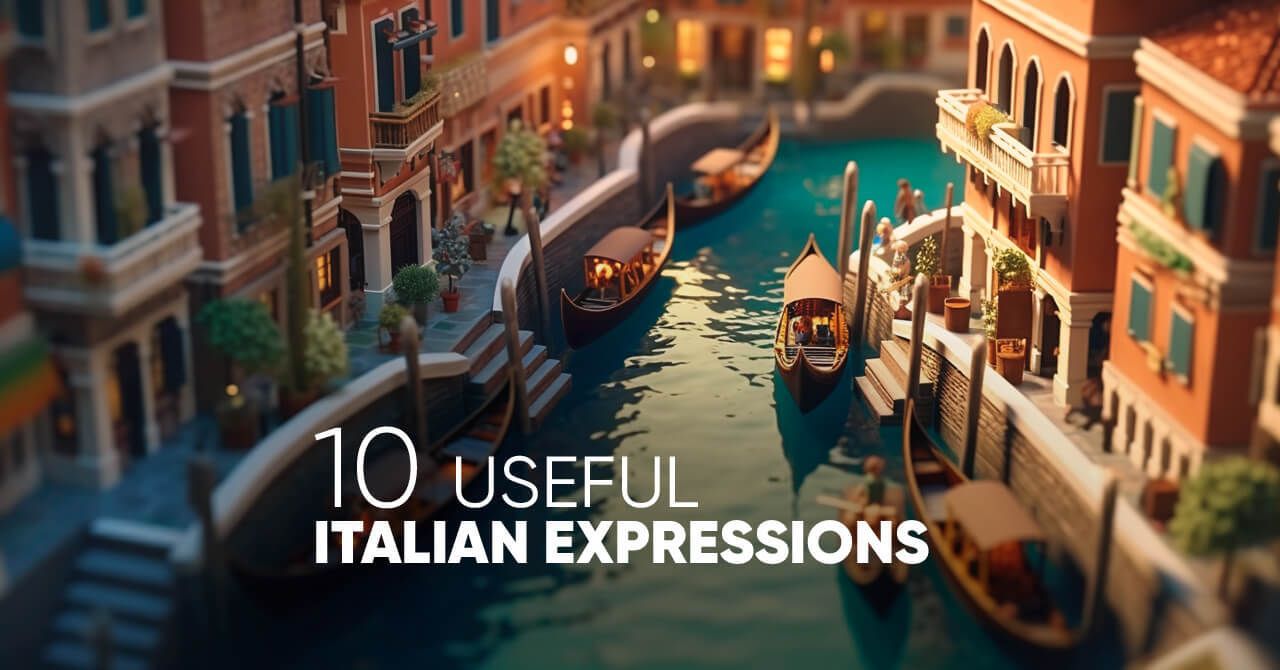
10 Popular Italian Expressions That Everyone Should Know
Here are the top expressions based on both popularity and usefulness for a foreigner in Italy.
Expressions and idioms are what make a language special. They develop over the years, and although their original meanings may no longer be culturally relevant, the expressions continue to be used, giving the language character and depth. Knowing some popular expressions can help you fit in and make you sound more fluent.
Italian native speakers on LiveXP will help you learn Italian idioms, slang expressions, and phrases naturally through 1-on-1 conversational classes. You will find out how to use them in real life and avoid mistakes in the future. Just go to LiveXP and choose a tutor to practice your Italian!
Here are the top expressions based on both popularity and usefulness for a foreigner in Italy.
Famous Italian phrases
Let’s start with the most famous Italian expressions of all. You’ve no doubt come across them before, but what do they really mean?
Mamma mia! — My goodness!
We all know the ABBA song, and you probably know the movie, but do you know what this popular Italian expression actually means? You may have already figured out that it translates to “mother my.” However, the English equivalent is “my goodness.” It is used as an exclamation to express a variety of emotions, such as shock or happiness.
Che bello! — How wonderful!
Literally meaning “that’s beautiful,” Italians regularly use this expression to show their enthusiasm for something nice, good, or attractive.
A presto! — See you soon!
This is a basic expression, yet a very important one. You can use this as an alternative to “arrivederci” (goodbye) if you know you’re going to see the person again.
Salute! — Cheers!
You might recognize this word as the translation of “health,” but it has various other meanings in different contexts. For example, it’s the word to say “cheers” when making a toast. It’s also how to say “bless you” when somebody sneezes.
Piantala — Stop it
If you want to tell someone to “cut it out” or “knock it off,” then you can use “piantala.” Be careful who you tell this to, as it can come across as very impolite if it’s not someone you’re close to.
Funny Italian Idiomatic Expressions
While some expressions make a lot of sense, others are downright absurd. Here are some of the quirky Italian idioms.
Acqua in bocca — Don’t say a word
If you don’t want someone to share what you told them, you should say, “acqua in bocca!” This is the same as “don’t say a word,” although the literal translation is “water in mouth.” This is because if there’s water in your mouth, you cannot speak.
Non sei capace di tenerti un cece in bocca — You have a big mouth
Here’s another phrase containing the word “bocca,” so what’s this one got to do with a mouth? It’s used to say that someone has a big mouth or is a gossip. The literal translation is quite funny: You are not able to keep a chickpea in your mouth.
Non avere peli sulla lingua — Don’t hold your tongue
This funny phrase means “don’t have any hair on your tongue,” which is probably not a sentence you ever thought you’d need to say. Italians use this expression to talk about a person who doesn’t hold back and who speaks their mind.
Cool Italian Phrases
If you want to show off your Italian language skills, then you can incorporate one of these expressions into a conversation.
Cavallo di battaglia — Pièce de resistance
A cavallo di battaglia is a battle horse, but of course, we’re more interested in the figurative meaning rather than the literal one. We often use the French term “pièce de resistance” to talk about our strongest asset; however, if you wanted to use the Italian version, you could say “È il mio cavallo di battaglia.”
Non te la prendere — Don’t get upset
Prendere is a very common verb meaning “to take.” In this expression, literally meaning “don’t take it,” it is used to say “don’t take it to heart” or “don’t get upset” by something. This is a great way to console a friend.
Now that you know a variety of funny, popular, and useful Italian expressions, which ones are you going to implement in your next conversation?
Hello! My name is Beth. I'm from France. I'm a French and English native speaker and I really like writing.

